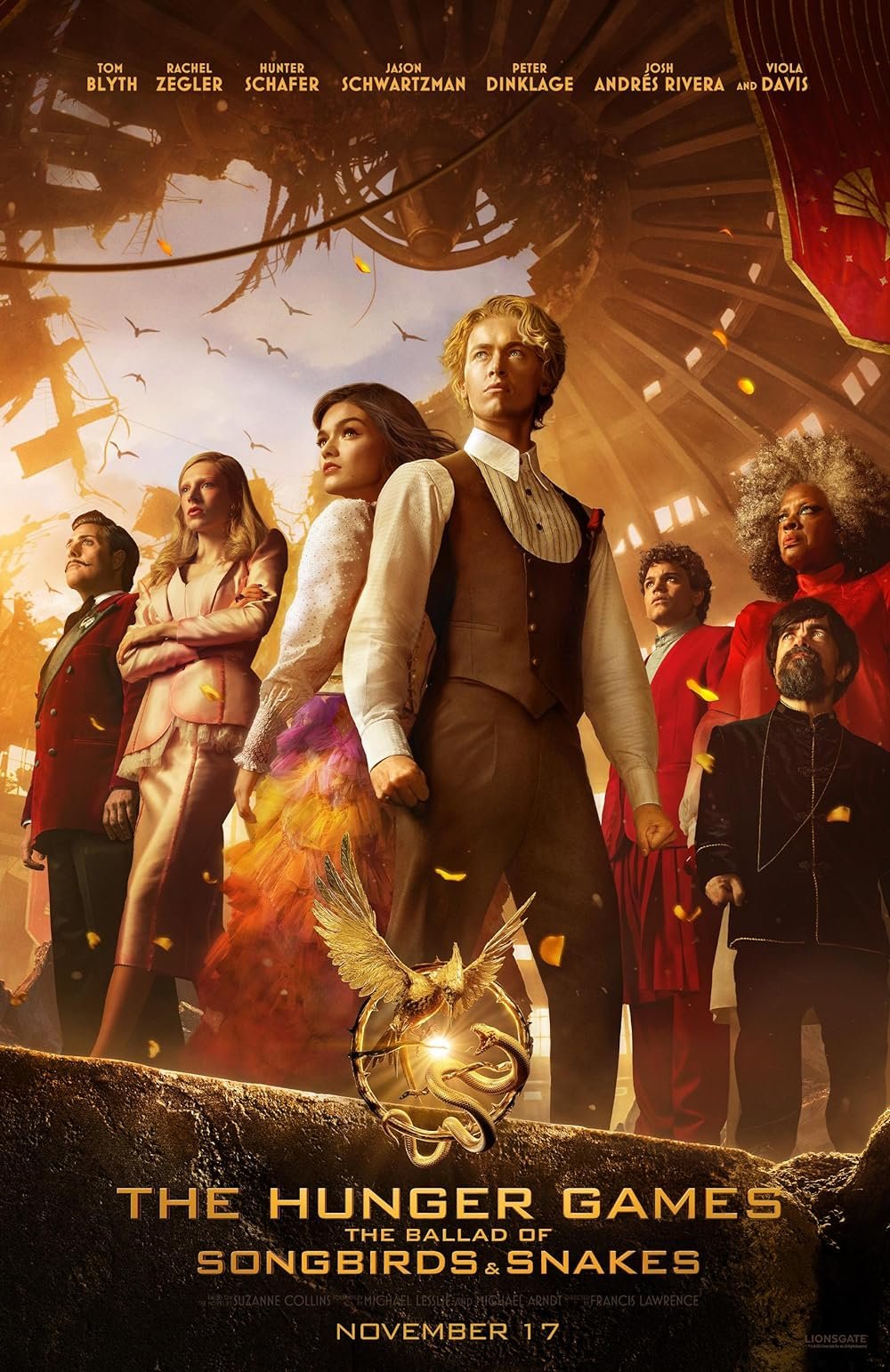The Hunger Games: The Ballad of Songbirds & Snakes (2023) [Review]
Anakin Skywalker, a promising young Jedi, is seduced by power and turns to the Dark Side.
Replace Anakin Skywalker with Coriolanus Snow (Tom Blyth), and you’ve got The Hunger Games: The Ballad of Songbirds & Snakes, based on the novel of the same name by Suzanne Collins. The new Hunger Games prequel follows a teenaged President Snow before he was president, exploring what turned him venomous.
As the child of a family fallen from grace during the war in Panem, Coriolanus keeps up appearances to compete with his peers at the Academy despite being hungry and on the verge of destitution. He was expecting to be granted a prestigious yearly prize as top graduate, which would secure his and his family’s future, but the rules have changed and he must now compete with the other students to be the best mentor to a tribute in the 10th Hunger Games. Coriolanus gets assigned a tribute from impoverished District 12, Lucy Gray Baird (Rachel Zegler), a charming young woman who captures the hearts of the Capitol audience with her soulful singing, but is an underdog in the games. They must work together for Lucy to survive and for Coriolanus to have a shot at the prize money.
Image: Lionsgate
Ballad owes a lot to Star Wars: Attack of the Clones (2002) and Revenge of the Sith (2005) in the same way Hunger Games bears obvious inspiration from Battle Royale (2000). Despite this debt, Ballad is its own beast that helps color in some lore and history in the world of Panem by showing us how the games evolved and introducing us to some key characters that help paint that picture. We get to meet the creator of the games, melancholy Casca Highbottom (Peter Dinklage), vain television host Lucretius ‘Lucky’ Flickerman (Jason Schwartzman), and Dr. Volumnia Gaul (Viola Davis), the sadistic Head Gamemaker. Finally, we have Sejanus Plinth (Josh Andrés Rivera), Coriolanus’ friend, classmate, and foil, who represents humanity and compassion, conflicting with the ruthlessness and desire for power bubbling up in Coriolanus as he loses his innocence over the course of the movie. All of the actors playing these characters, along with the stellar Blyth and Zegler, are the highlight of the film for me and are the power that drive it forward.
The film is split into three sections. Chapters one and two build up the narrative to their own conclusion with the end of the year’s games, and then chapter three is almost like its own hour-plus long film that halts all momentum when it starts. It builds to its own climax, and shows us the ultimate corruption of Snow with a lot of great character work, but I just wish the filmmakers had found a way to maintain some of the tension instead of starting back down at zero, since the real meat of the movie is here. Perhaps this would have worked better as a TV miniseries.


